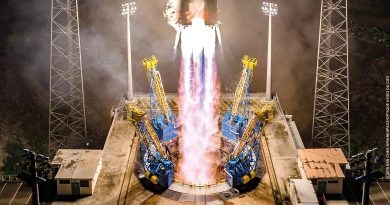Missing and murdered Indigenous women and girls: What Canada’s parties are promising
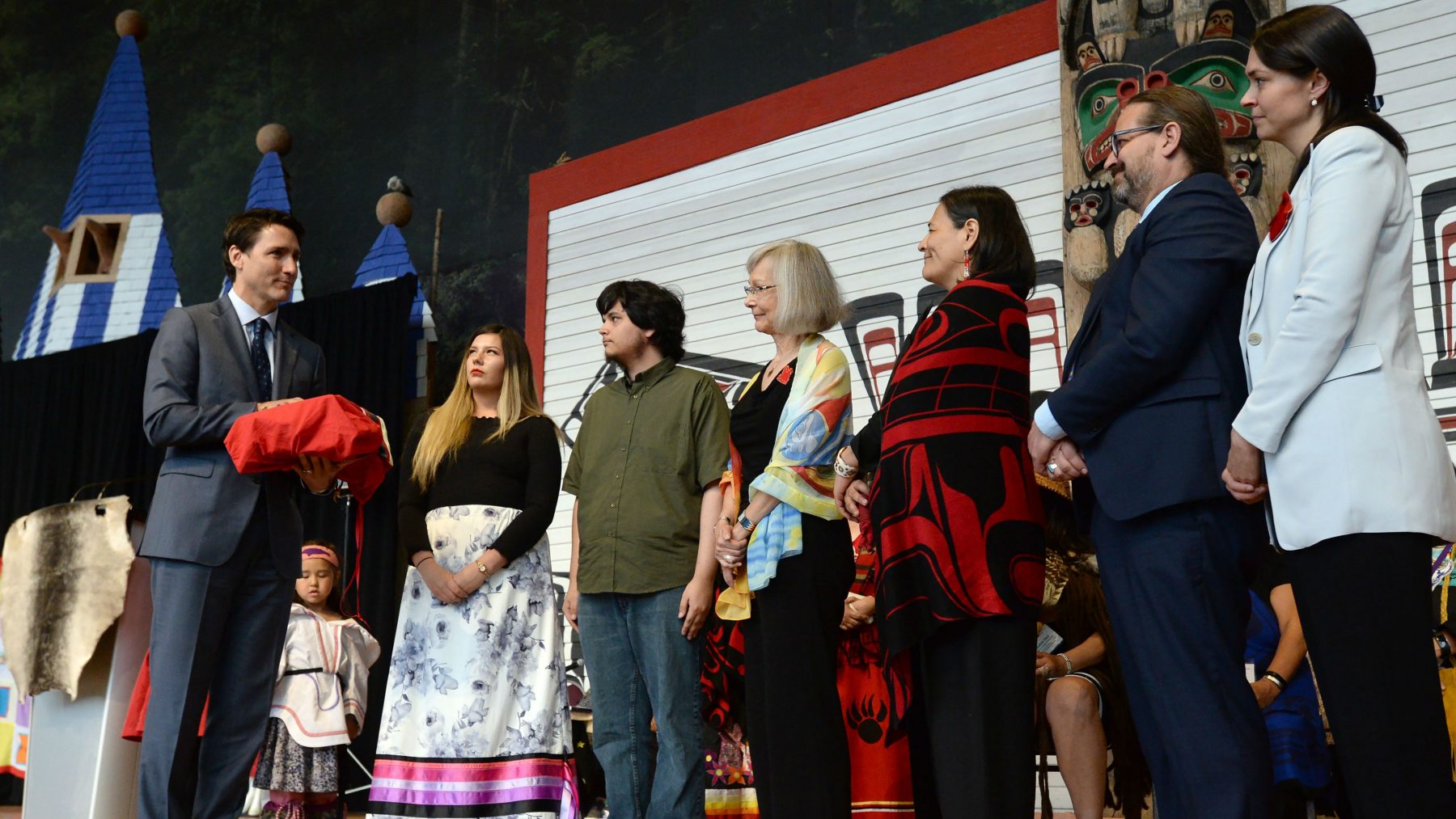
Little time has been spent on the issue of missing and murdered Indigenous women and girls so far in Canada’s federal election campaign, sparking skepticism from families that changes called for in the national inquiry’s final report will be a priority for the next government.
The Liberals, New Democrats and the Green Party have made commitments in their platforms to implement the calls for justice from the MMIWG inquiry’s final report, the TRC’s calls to action and UNDRIP. The Conservative platform pledges to develop a National Action Plan to address the issue of missing and murdered Indigenous women and girls.
For the last 15 years Sharon Johnson, who is from Seine River First Nation in northern Ontario, has been working to spread awareness of missing and murdered Indigenous women after her sister Sandra was found dead in Thunder Bay.
“They need to be supporting our families every single day, but I don’t feel like I can rely on any particular party at the moment,” said Johnson.
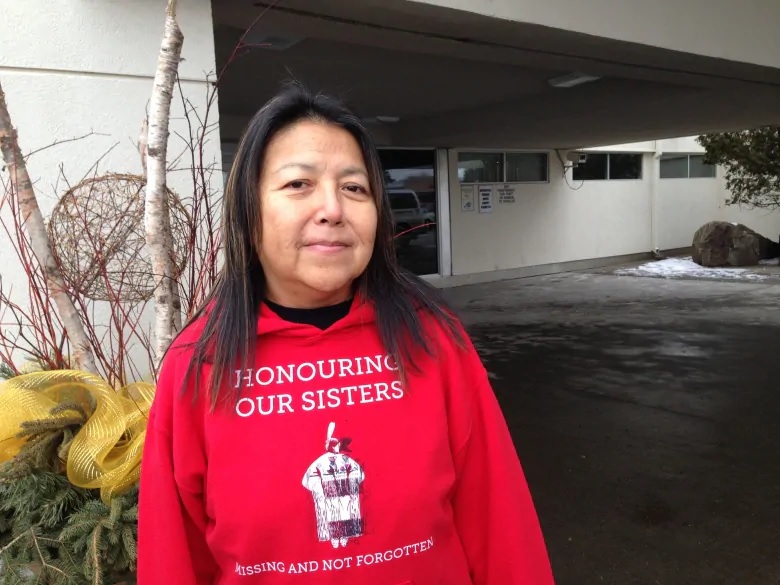
Johnson said the federal government needs to support families of MMIWG and create more safe spaces for women. She said there are still glaring systemic gaps in services to help Indigenous women and there needs to be immediate action to create more women’s shelters and safe places to help those escaping from abusive situations.
“It’s scary to think they’re just going to end up on the streets and somebody else is going to take them in and might be worse or more violent,” she said.
Meggie Cywink is from Whitefish River First Nation, 100 km southeast of Sudbury, Ont. It’s been 25 years since her sister Sonya Cywink was killed, a case that still remains unsolved.
She had a chance to address Conservative leader Andrew Scheer directly about her concerns:
She said the government needs to do more than go through the motions of implementing the recommendations and instead work directly with families and communities.
“The answer is actually doing the work that’s necessary to stop the violence, to slow the violence down because it’s about prevention and those things happen in communities,” she said.
“There’s women who are missing and murdered every day, this is not a problem that’s going away.”
Tara Williamson is a member of Opaskwayak Cree Nation from Swan Lake, Man., and is an independent researcher and consultant with the Yellowhead Institute, a First Nations led-research centre.
She said Indigenous issues have been “glaringly absent” from the election campaign.
“The fact that another commission comes forward and says actually you still have to do all these things to highlight Indigenous issues is going to point out that a lot of things haven’t changed,” she said.
What the parties say
Green Party leader Elizabeth May told CBC News that she’s almost completed reading the MMIWG inquiry’s final report.
“A lot of the recommendations from the inquiry dovetail with things we were already planning to promote,” said May.

She said cancelling the Trans Mountain pipeline expansion and ending fracking would reduce the number of work camps, staffed mainly by men, in remote areas. Testimony and studies reviewed by the inquiry linked these with violence toward Indigenous women.
The Green Party platform pledges to implement the Calls to Action from the Truth and Reconciliation Commission, as well as the recommendations from the inquiry into missing and murdered Indigenous women and girls.
The New Democratic Party said in an emailed response that leader Jagmeet Singh has read the MMIWG inquiry’s final report.
“We will work with Indigenous peoples to co-develop a National Action Plan for Reconciliation to ensure that Canada’s laws, policies, and practices are consistent with our human rights obligations,” read the email.
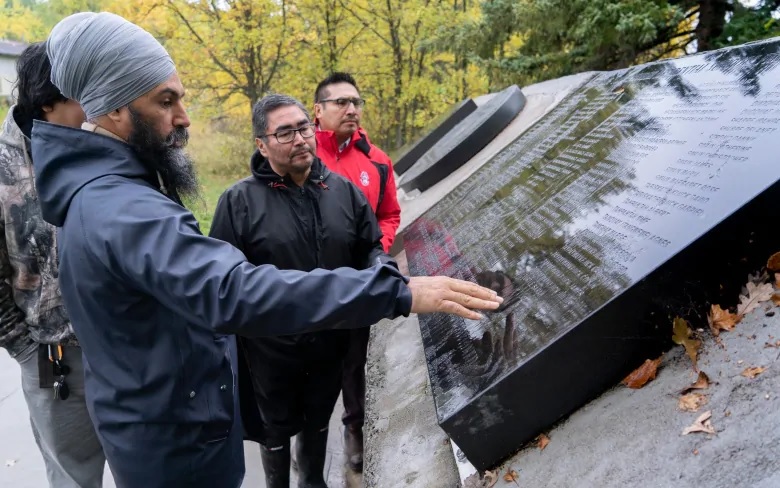
The NDP platform pledges to establish “a comprehensive plan to address violence against Indigenous women, girls, and LGBTQI2S+ people” and ensure that those fleeing violence have access to culturally-appropriate programming, emergency shelters, and transitional housing. It also pledges to ensure full gender equality in Indian status registration as a priority.
The Liberal Party said in an emailed response that since 2015, the Liberals have worked to renew the relationship with Indigenous people, and that “Justin Trudeau and the Liberal team believe that there is no relationship more important to Canada than the relationship with Indigenous peoples.”
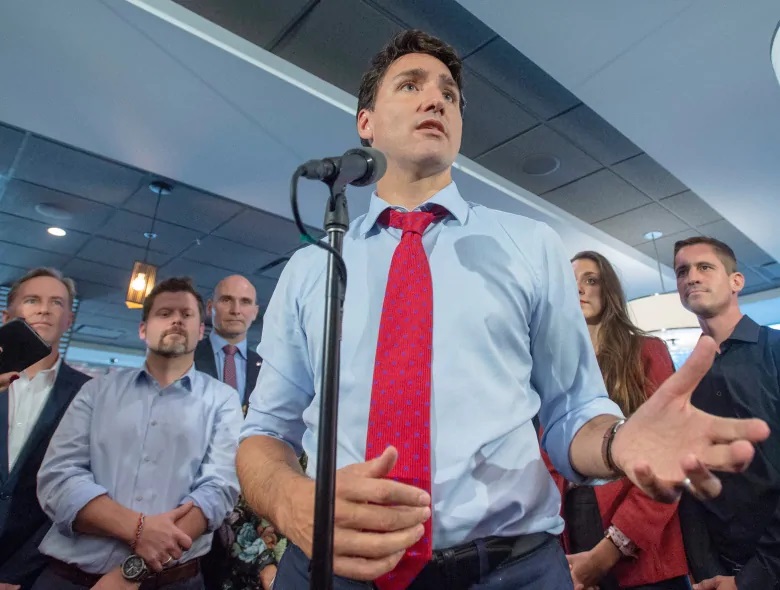
Its platform says the party has committed to “co-developing and implementing a distinctions-based national action plan to implement the [MMIWG inquiry] report’s Calls to Justice.”
Conservative leader Andrew Sheer has not committed to implementing UNDRIP and disagreed with the MMIWG inquiry’s finding that genocide was committed against Indigenous women and girls.
The Conservative Party did not respond to multiple requests from CBC News for comment on their plans to address Indigenous issues but the party’s platform pledges to “develop a National Action Plan to address the ongoing tragedy of missing and murdered Indigenous women and girls.”
Related stories from around the North:
Canada: Levels of violence against young women in Northern Canada triple rest of country, CBC News
Finland: Sámi Parliament of Finland torn on local rights, urban influence, Yle News
Norway: Political earthquake shakes up Northern Norway, The Independent Barents Observer
Russia: Career diplomat to represent Murmansk region in Russian senate, The Independent Barents Observer
Sweden: Twenty-five Indigenous Sami remains returned by museum are reburied in northern Sweden, Radio Sweden
United States: Inuit leaders to advance Indigenous human rights, Radio Canada International



